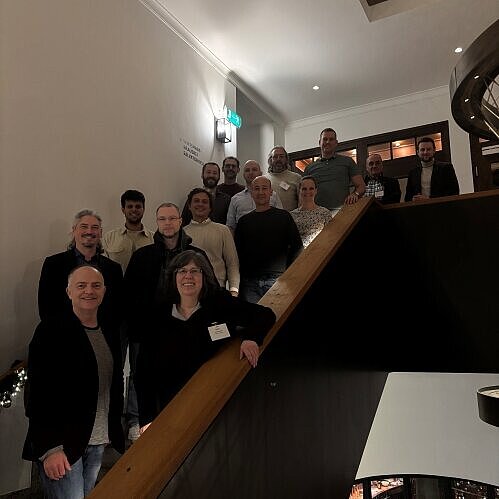Professional exchange on bio-based and sustainable materials and advanced materials in the Danube region
There are three transnational thematic groups in the RTIT project for the development of knowledge communities. These are led by Bayern Innovativ (Germany), the National Institute of Chemistry (Slovenia) and Wood K Plus (Austria). The aim is to further expand expertise in the Danube region on the topics of bio-based and sustainable materials and advanced materials. In the long term, cooperation between the transfer institutions and their partners from science and industry is to be established via the resulting communities.
The thematic group on bio-based materials is headed by Wood K Plus. Bio-based materials are materials that are produced using biological material from living or dead organisms and are in some cases biodegradable. The RTIT project focuses on wood and other lignocellulosic materials, mycelium, chitosan and other organic materials such as organic material from agricultural waste or unused material side streams such as biochar or bioplastics from corn starch.
The National Institute of Chemistry leads the Sustainable Materials Group. Sustainable materials are materials that are based on natural materials or other materials that can be reused and recycled or have other environmental benefits. In addition, their sourcing, production and use should have minimal impact on the environment, conserve resources and contribute to social equality. Their environmental performance covers the entire life cycle from sourcing, production and use to recycling or landfill. In RTIT, the following materials are considered here: Wood and composites mainly in the construction sector, sustainable materials in the textile sector, concrete recycling/recycling of construction materials, biodegradable polymers and packaging, and the secondary use of agricultural materials.
Bayern Innovativ heads the Advanced Materials group. Advanced Materials are a very heterogeneous group of materials that are designed to fulfill functional requirements for advanced applications. Advanced Materials do not always have to be newly developed to meet future requirements. In general, they can include new alloys, polymers, biopolymers, porous materials, specific systems, new types of fibers, composites, metamaterials or nanomaterials. Within the project duration of RTIT, the focus of this thematic group is on biopolymers (wood, various fibers, agricultural materials), composites for construction (e.g. carbon, hemp, wood) and for technical applications, hybrid materials, new fibers for functional textiles also in combination with natural materials, coatings for agricultural material and equipment, materials for additive manufacturing e.g. 3D printing for agriculture and nanotechnology.e.g. 3D printing for agriculture and construction, self-healing materials and materials for electronics (recyclable materials for components, printed electronics and bio-based materials such as mycelium).
All partners in the project will have the opportunity to participate in each of the three groups during the second project period, contributing their own expertise as well as building new expertise. Where there are overlaps, synergies are specifically sought. As the project progresses, the groups will then develop three rollout and demonstration plans for the Danube region. The aim is to bring SMEs into contact with each other and with research institutions on the topics of the three groups in order to further advance the transfer of knowledge, technology and innovation in the region in the field of materials, including through transnational cooperation.
About the project
"RTIT - Knowhow Communities for Accelerating RTI Transfer in the Danube Region" aims to establish knowledge communities in the field of materials and materials technology in the Danube region and thereby strengthen the transfer of knowledge, technology and innovation in the region. The project consortium consists of thirteen project partners and nine associated strategic partners from Austria, Bosnia and Herzegovina, Bulgaria, Germany, Hungary, Montenegro, Slovenia and Ukraine. Bayern Innovativ is represented in the consortium as the German partner. The lead partner is Inovaciono preduzetnički centar Tehnopolis (Innovation and Entrepreneurship Center Tehnopolis) from Montenegro.
"RTIT - Knowhow Communities for Accelerating RTI Transfer in the Danube Region" is an Interreg Danube Region project funded by the EU (Project ID DRP0200330). The duration is 01.01.2024-30.06.2026.








